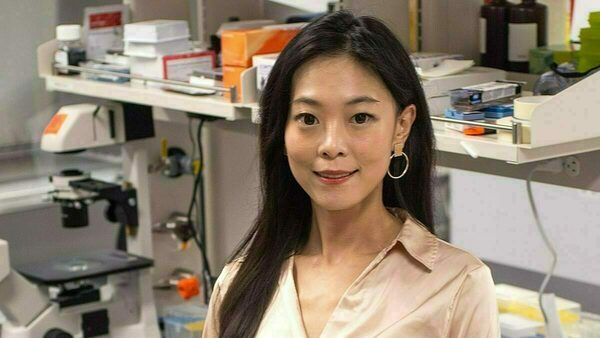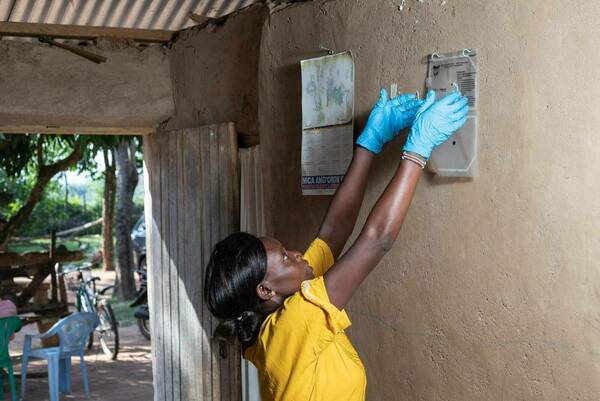Yichun Wang named standing member of NIH Innovations in Nanosystems and Nanotechnology Study Section
Yichun Wang, Keating-Crawford Collegiate Professor of Biomolecular Engineering and assistant professor of chemical and biomolecular engineering at the University of Notre Dame, has been appointed to serve as a standing member of the Innovations in Nanosystems and Nanotechnology (INN) Study Section within the National Institutes of Health (NIH) Center for Scientific Review.
Study Section members are recognized as leading experts in their fields, selected for their outstanding research accomplishments and ongoing contributions to science. As a member, Wang will play a critical role in shaping federal funding priorities for biomedical research. Members evaluate research proposals submitted to the NIH in areas such as medicine, diagnostics, and therapeutics. They also advise NIH national advisory councils and boards and assess the current state of research in their respective disciplines.
Wang’s research focuses on developing nanomaterials for advanced therapeutic and diagnostic applications through experimental, computational, and data-driven methods. She and members of the Wang Lab advance biointerface engineering—the interface between materials and biomolecules—by uncovering the mechanisms of material-bio interactions, driving innovations in nanomedicine, diagnostics, regenerative engineering, and biomanufacturing.
“This appointment is not only a personal honor,” said Wang “but also reflects Notre Dame Engineering’s growing leadership at the intersection of nanotechnology, bioengineering, and translational medicine. Through this role, I will contribute directly to steering national research investments in nanoscale innovation, which aligns closely with our College’s mission to advance technologies that address urgent societal challenges.”
Wang began her four-year term in July.
Previous honors for Wang include a National Science Foundation (NSF) CAREER award—one of the highest honors awarded to young faculty—and the Maximizing Investigators’ Research Award (MIRA) from the National Institute of General Medical Sciences (NIGMS), part of the NIH.
Wang, who received her Ph.D in biomedical and medical engineering at the University of Michigan, joined the Notre Dame faculty in 2020.
Latest Research
- NSF Cyber SMART’s fall meeting shapes fifth year of project, legacy and future plans, and adds new memberThe U.S. National Science Foundation (NSF) Cyber SMART center gathered for its fall meeting on the University of Notre Dame campus this September. The meeting served as a checkpoint with progress reports and new projects from research leads and students…
- Slavic and Eurasian studies professor wins Humboldt fellowship to research how Russia’s religious past shapes its presentWhen Russia invaded Ukraine on Feb. 24, 2022, Sean Griffin realized his second book needed a new title. Griffin, an associate professor in the University of Notre Dame’s Department of…
- Notre Dame’s R.I.S.E. AI Conference builds interdisciplinary collaboration to inform human-centered artificial intelligenceAs artificial intelligence (AI) transforms nearly every sector of society — from healthcare and education to governance and global development — a critical question emerges: How can we conscientiously design and deploy these powerful technologies to positively impact society? This…
- University of Notre Dame joins the Global Coalition of Ukrainian StudiesThe University of Notre Dame has joined the Global Coalition of Ukrainian Studies after signing a Memorandum of Cooperation (MOC), formalized on September 24, 2025, at the Ukrainian Institute of America in New York City. Notre Dame joined four other American…
- The University of Notre Dame’s Mendoza College of Business and Industry Labs team up to inspire national security manufacturing competitiveness in the regionThe South Bend - Elkhart Region is full of manufacturing companies that are poised to grow, and Executive Master of Business Administration (EMBA) and Master of Business Administration (MBA) students at the University of Notre Dame are finding innovative ways to contribute to that growth. Earlier…
- Notre Dame research informs WHO conditional recommendation for spatial repellents in malaria vector controlThe World Health Organization (WHO) recently announced a “conditional recommendation” for spatial emanators, also known as “spatial repellents,” in the fight against malaria. This key determination was informed by spatial repellent studies that included the Advancing Evidence for the Global Implementation of Spatial Repellents (AEGIS) Project in Kenya, led by the University of Notre Dame and funded by Unitaid. The findings from this particular study were recently published in The Lancet.













